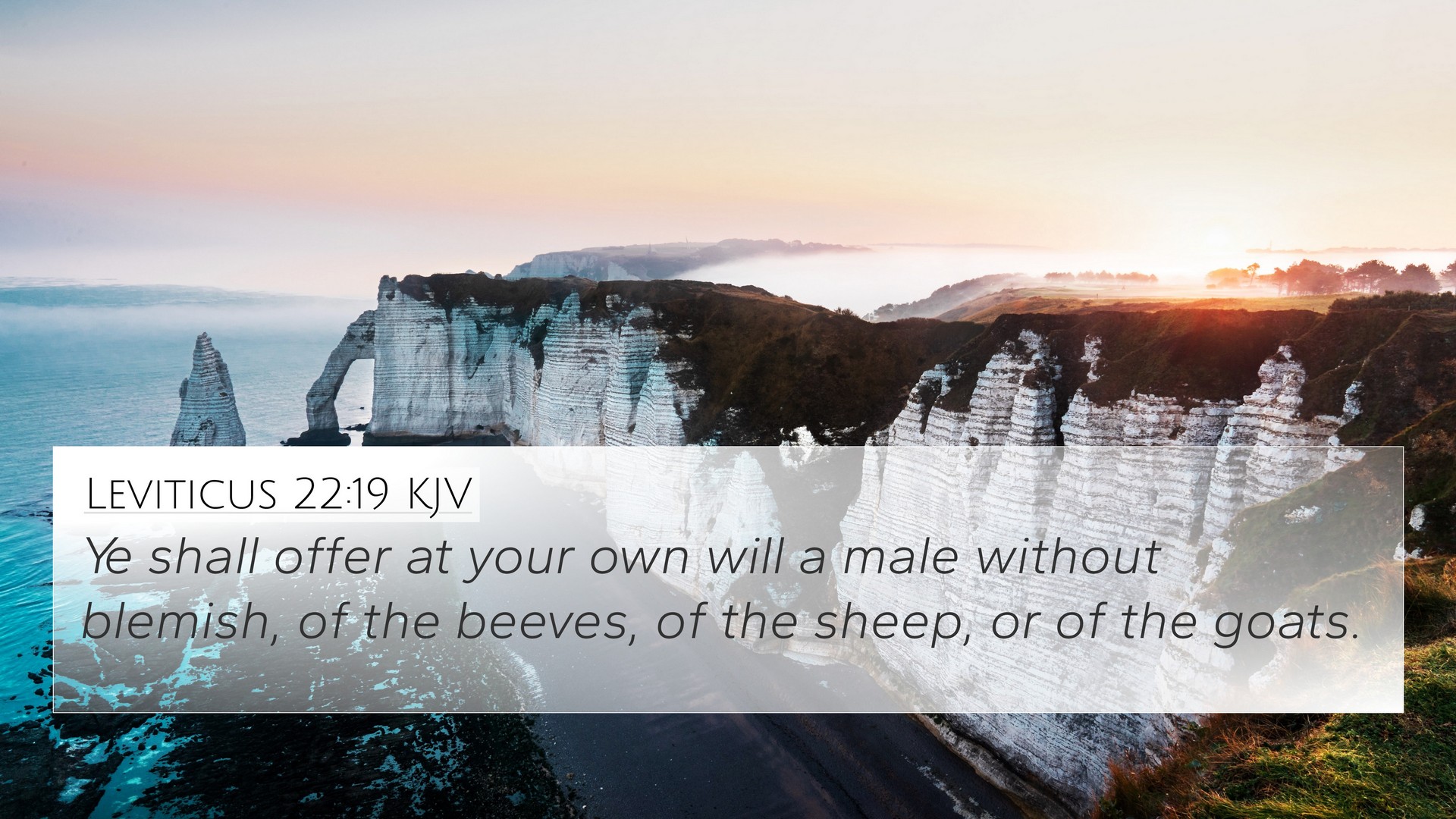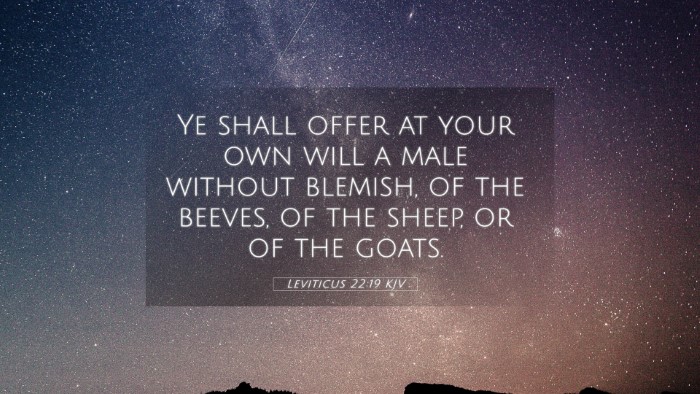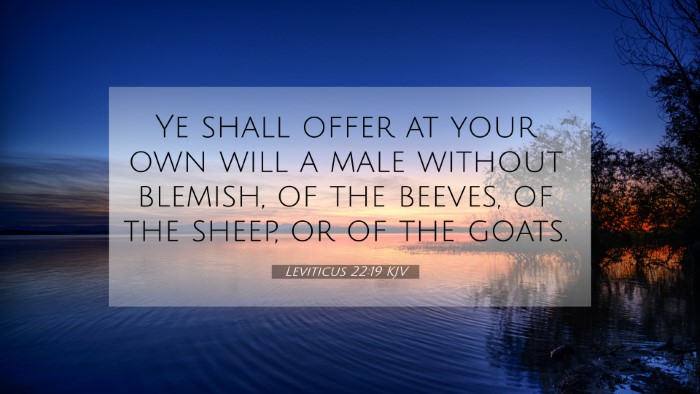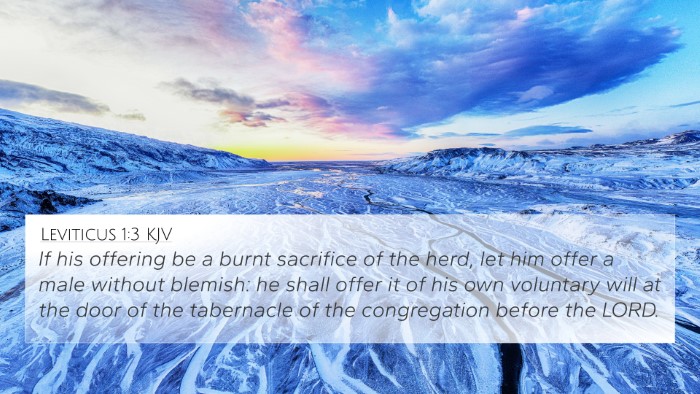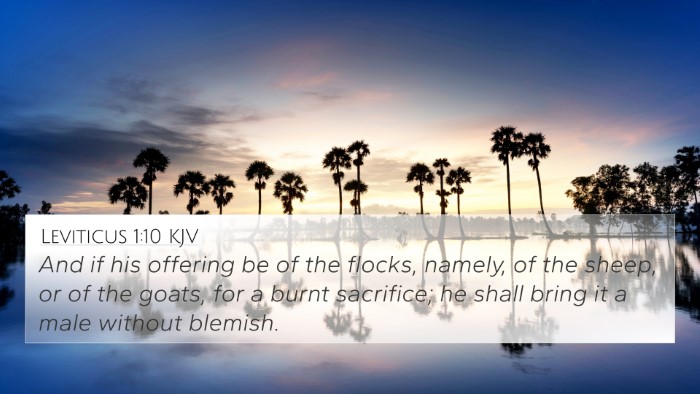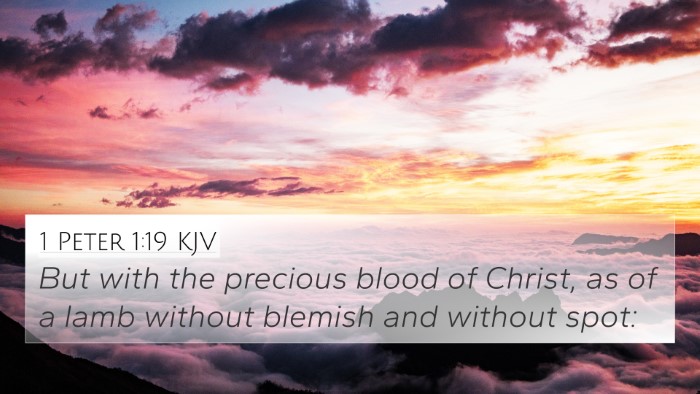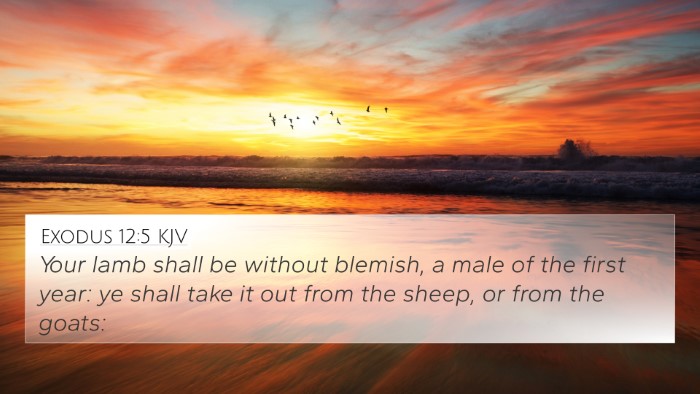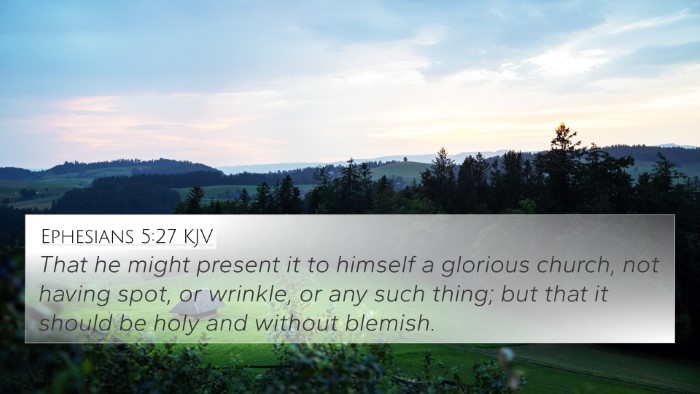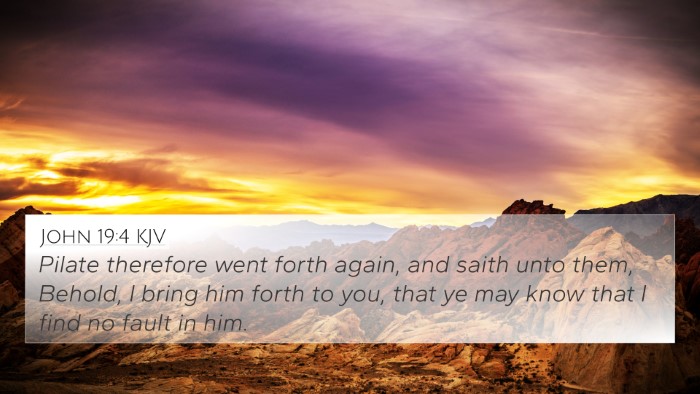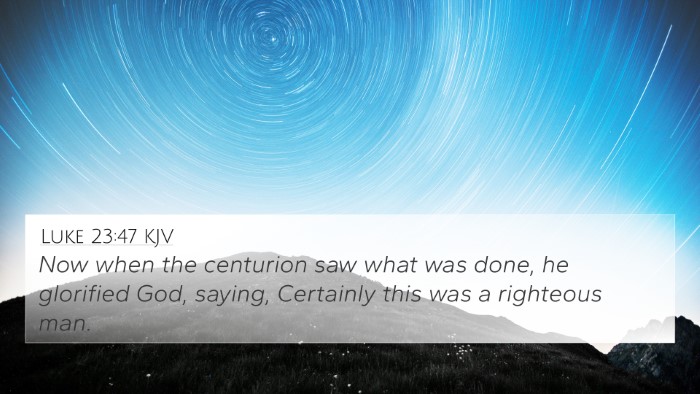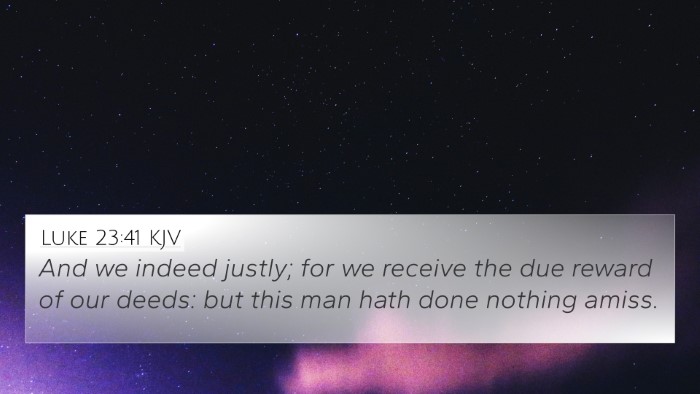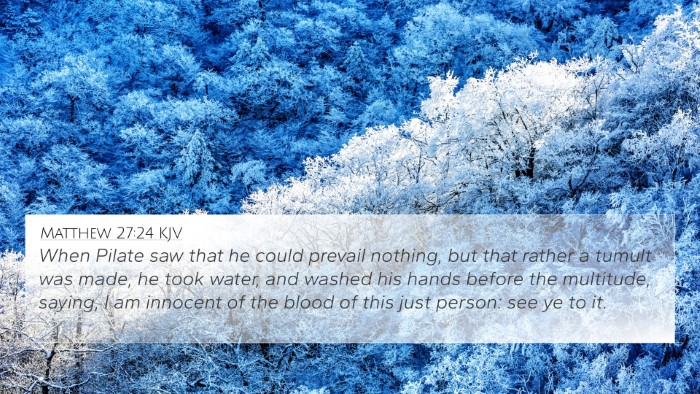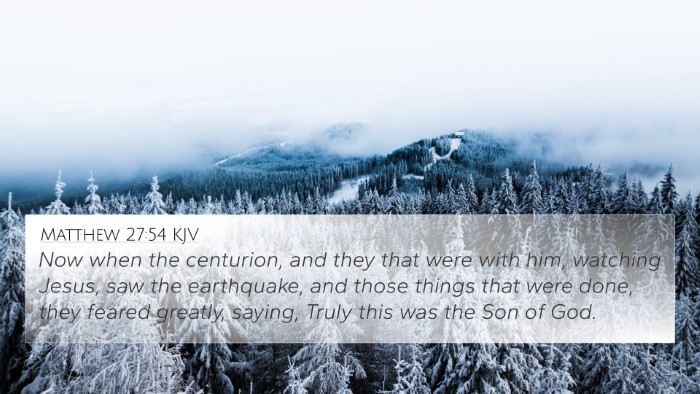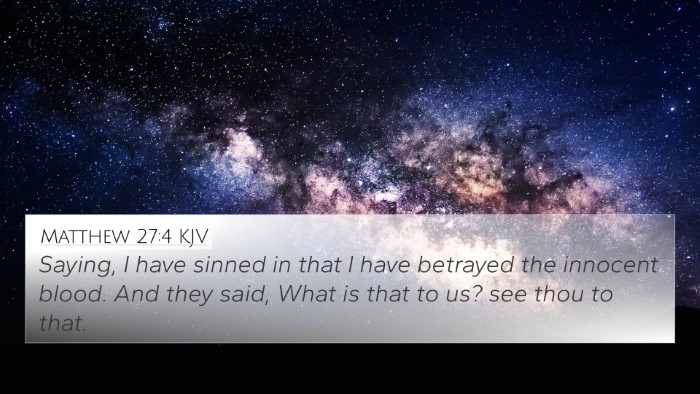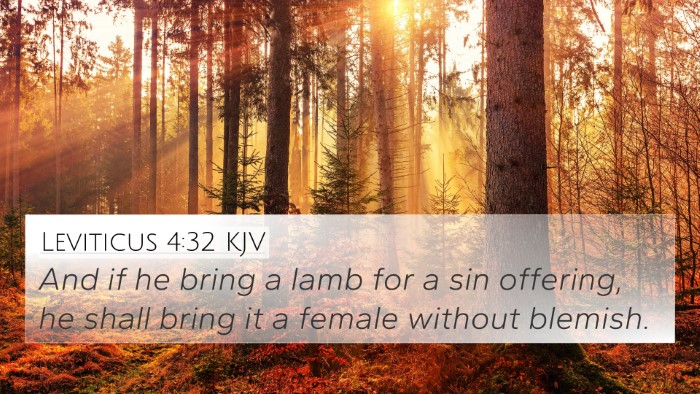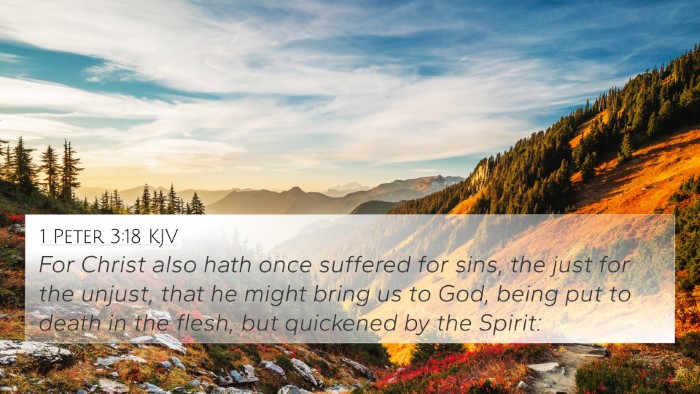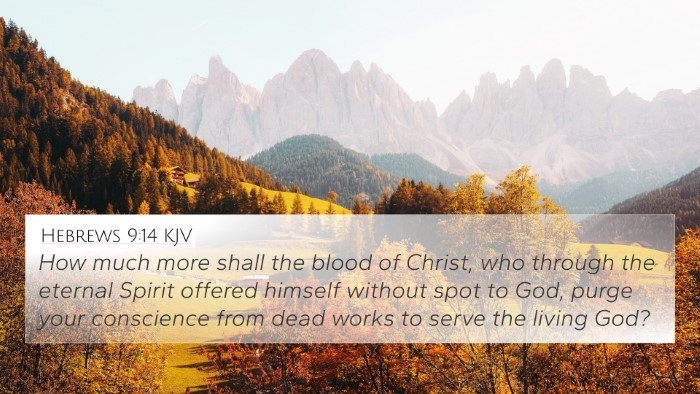Understanding Leviticus 22:19
Bible Verse: "You shall offer of your own free will a male without blemish, from the cattle, from the sheep, or from the goats." (Leviticus 22:19)
Context and Significance
The Book of Leviticus outlines the laws and regulations that were to govern the priests and the people of Israel. Chapter 22 specifically emphasizes the qualifications and conditions under which offerings could be made, highlighting the importance of purity and the proper attitude in worship.
Meaning of Leviticus 22:19
In this verse, God commands the Israelites to offer animals that are flawless as sacrifices. This reflects God's desire for holiness and perfection in worship. According to Matthew Henry, the lack of blemish signifies that offerings are to represent one's best to God, mirroring the purity and perfection of what He desires from His people.
Insights from Commentaries
- Matthew Henry: Emphasizes that God is entitled to our best and that sacrifices should come from a willing heart, emphasizing the spiritual significance of the offerings.
- Albert Barnes: Points out that the requirement for a male without blemish underscores not only physical perfection but also spiritual symbolism, where Christ, the ultimate sacrifice, is depicted as unblemished.
- Adam Clarke: Discusses how the instructions in Leviticus reflect the seriousness with which God views offerings and the commitment involved in true worship.
Cross-References and Thematic Connections
Leviticus 22:19 can be cross-referenced with several other scripture passages that enhance our understanding of the themes of purity, sacrifice, and the importance of offerings:
- Exodus 12:5: "Your lamb shall be without blemish..." - highlights the requirement of sacrificial animals to be perfect.
- 1 Peter 1:19: "But with the precious blood of Christ, as of a lamb without blemish and without spot." - connects the sacrificial system to Christ.
- Hebrews 9:14: "How much more shall the blood of Christ, who through the eternal Spirit offered Himself without spot to God..." - emphasizes Jesus as the perfect sacrifice.
- Malachi 1:8: "And if you offer the blind as a sacrifice, is it not evil?" - stresses God's disdain for imperfect offerings.
- Leviticus 1:3: "If his offering is a burnt sacrifice of the herd, let him offer a male without blemish..." - reiterates the principle of offering the best to God.
- Romans 12:1: "Present your bodies a living sacrifice, holy and acceptable to God..." - relates the principle of offering in the New Testament context.
- Philippians 4:18: "I have received... a sweet-smelling aroma, an acceptable sacrifice..." - correlates to the idea of pleasing God with our offerings.
Application and Reflection
The command in Leviticus 22:19 challenges believers today to consider the quality of what they give to God, not merely in material terms but in their lives and worship. It serves as a reminder that God desires not just offerings but also our hearts and intentions in offering.
Conclusion
In summary, Leviticus 22:19 calls for a serious reflection on the offerings we present to God. It invites us into a deeper understanding of sacrifice, linking the Old Testament practice to the fulfillment found in Christ as the ultimate unblemished Lamb of God. By examining cross-references, we deepen our understanding of biblical themes and the continuity of God’s message throughout Scripture.
SEO Keywords
- Bible verse cross-references
- Connections between Bible verses
- Linking Bible scriptures
- Comparative Bible verse analysis
- Bible verses that relate to each other
- Cross-referencing Biblical texts
- Thematic Bible verse connections
Tools for Further Study
For those looking to delve deeper into cross-referencing, consider utilizing tools such as a Bible concordance or a comprehensive Bible cross-reference guide. These resources can enhance your understanding of how biblical texts interconnect and help structure a more meaningful study.
Final Thoughts
As we explore the interconnectedness of Scripture, let us be guided by the principles laid out in Leviticus 22:19 and strive to offer to God what is best, both in our resources and our spiritual lives.
